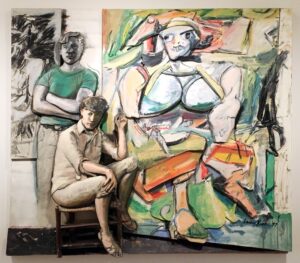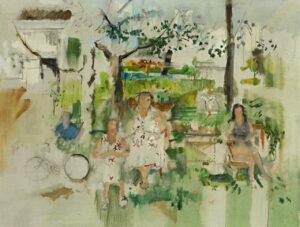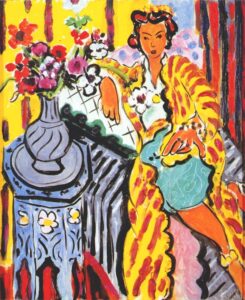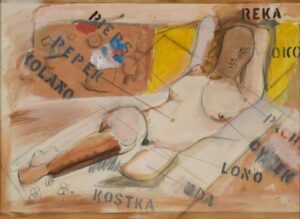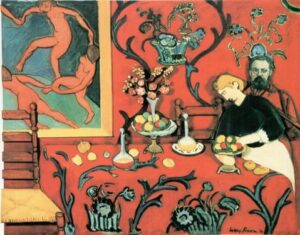Dear Zazie, Hope you had a good day. Mine was good and can be summed up in three words; chores, readin’, and grillin’. Here is today’s Lovers’ Chronicle from Mac Tag to his muse. Follow us on twitter @cowboycoleridge. What part of what comes after to enjoy the most? Rhett.
The Lovers’ Chronicle
Dear Muse,

often best
© copyright 2020 mac tag/cowboy coleridge all rights reserved
the light of twilight dims
restless, be sweet the darkness
to the need no longer ignored
renunciation, simple from this solitude
the mornin’ arrives snuggled
in the convenin’ road, unexhausted,
rampant, ride, sing, laugh, shake
the urgent symphony, sing our song
© copyright 2019 mac tag/cowboy coleridge all rights reserved
the night
your face upturned
the song
the fadin’ light
attenuates
sweet and dark
listen
every pause
in which we lose
ourselves
rain fallin’ now
and the way you look
and what comes after
© copyright 2018 mac tag/cowboy coleridge all rights reserved
a guitar, and her voice
high, soft, plaintive
losin’ myself in the harmony
slow and dreamy, always
melancholy
what comes after
her in love with him,
him with her;
her with me,
i with no one
nothin’ will come of it all
© copyright 2017 mac tag/cowboy Coleridge all rights reserved
Today is the birthday of Joseph Crawhall III (Morpeth, Northumberland, England 20 August 1861 – 24 May 1913 London); artist, the son of artist Joseph Crawhall II.
In the 1880s and 1890s, his work became associated with the Glasgow Boys. He was influenced by the Impressionists, and his work, like theirs, was rejected by the art establishment, in his case in the form of the Royal Scottish Academy.
In 1887/88 he visited Tangiers with Pollock Nisbet, Robert Alexander and Robert’s son Edwin.
In the 1880s he travelled throughout Morocco and Spain, abandoning oil painting and moving to watercolours with a lighter palette.
Gallery
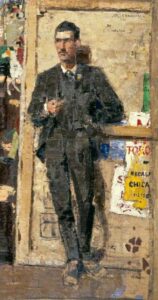
By his friend Edward Walton
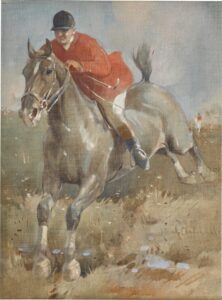
The huntsman
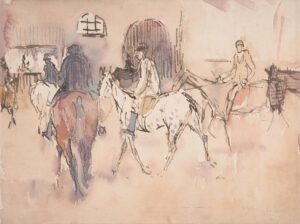
The Riding School – Yale Center for British Art
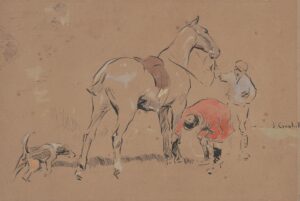
The Loose Shoe – Yale Center for British Art
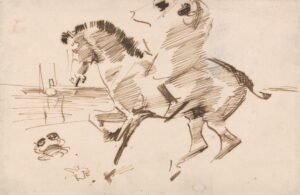
Tangiers Beach, A Horse Shying at a Crab – Yale Center for British Art
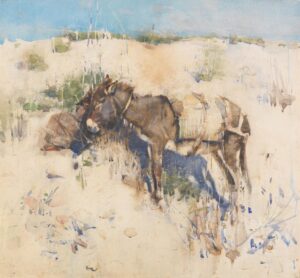
Tangier – Yale Center for British Art
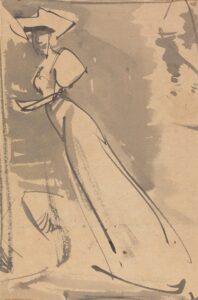
Study of a Woman with Wide Hat – Yale Center for British Art
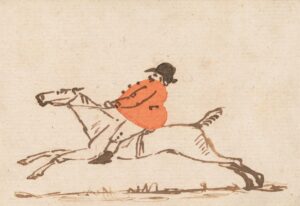
Horse and Rider, a Stout Huntsman on a Galloping Horse – Yale Center for British Art
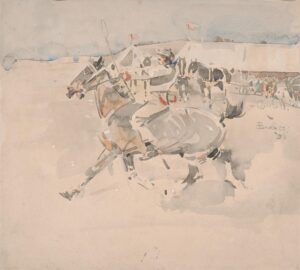
Barnett Fair, putting him through his paces – Yale Center for British Art
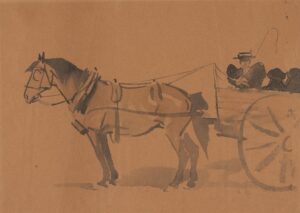
Auntie Bee with her two Nieces in a Pony Cart – Yale Center for British Art
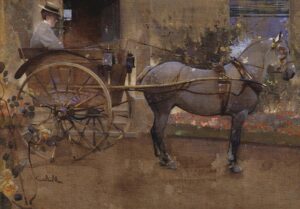
The governess
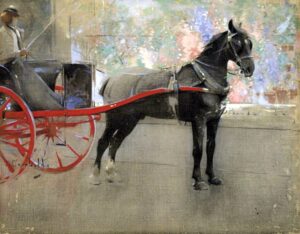
The flower shop
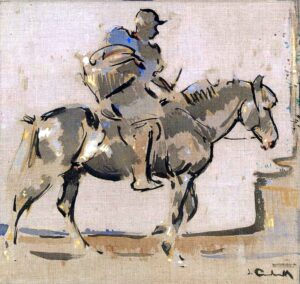
The butcher’s boy
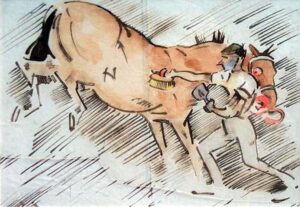
Hackenden
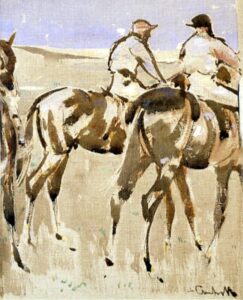
American jockeys or racehorses
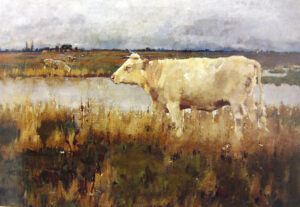
A Lincolnshire pasture
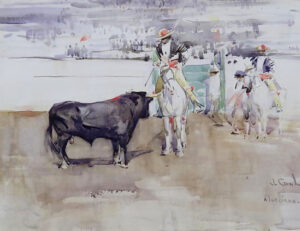
Bullring in Algeciras, 1891
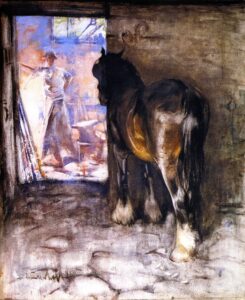
The forge
******************************************************************************
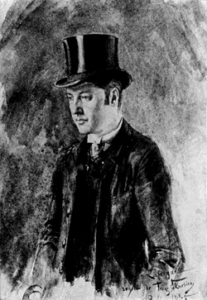 On this day in 1887, Franco-Uruguayan poet,Jules Laforgue died in Paris. He wrote a poem called “Petites misères d’octobre”. I was moved by the closing stanza…
On this day in 1887, Franco-Uruguayan poet,Jules Laforgue died in Paris. He wrote a poem called “Petites misères d’octobre”. I was moved by the closing stanza…
Donc, petite, deux sous de jupe en œillet tiède,
Et deux sous de regards, et tout ce qui s’ensuit….
Car il n’est qu’un remède
A l’ennui.
which might be translated as…
So, petite, two bits of underskirt and a still-warm zipper
and two cents of glances and what comes after . . .
surely that is the remedy
for ennui.
The “what comes after” part seized me and I thought of the way we looked at each other and what came after. Then I thought, what a great title for a song…… and Voila! The song of the day.
The Song of the Day – The Honeydogs – “What Comes After”
| Dino Campana |
 |
|
|
Today is the birthday of Dino Campana (Marradi; 20 August 1885 – 1 March 1932 Scandicci); visionary poet. His fame rests on his only published book of poetry, the Canti Orfici (“Orphic Songs”), as well as his wild and erratic personality, including his ill-fated love affair with Sibilla Aleramo. The 2002 film Un Viaggio Chiamato Amore, by Michele Placido, depicts their affair. He is often seen as an Italian example of a poète maudit.
In 1916, Campana met Aleramo, the author of the novel Una donna, and began an intense and tumultuous relationship with her. Aleramo ended their affair at the start of 1917 after a brief encounter in Christmas 1916 in Marradi. Testimony still remains of the tragic correspondence between Campana and Aleramo, and their letters have been recently published. This correspondence begins with a letter from Aleramo dated June 10, 1916, in which the author expresses her admiration for “Canti Orfici”, declaring the poems to have ‘enchanted and bedazzled’ her. She was then holidaying in the Villa La Topaia at Borgo San Lorenzo, while Campana was in a critical condition at Firenzuola, recovering after being struck by partial paralysis to the right side of the body.
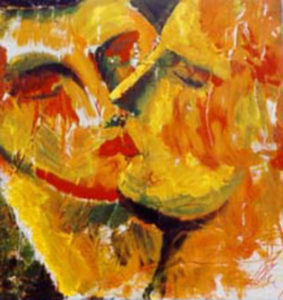
Dino Campana 2000 by Sandro Chia
Verse
- Notturni
La chimera
Non so se tra rocce il tuo pallido | Viso m’apparve, o sorriso | Di lontananze ignote | Fosti, la china eburnea | Fronte fulgente o giovine | Suora de la Gioconda O delle primavere | Spente, per i tuoi mitici pallori | Oregina o Regina adolescente… (p. 17)
- Il canto della tenebra
La luce del crepuscolo si attenua: | Inquieti spiriti sia dolce la tenebra | Al cuore che non ama più! (p. 20)
- La Verna
22 settembre (La Verna)
Il corridoio, alitato dal gelo degli antri, si veste tutto della leggenda Francescana. Il Santo [Francesco d’Assisi] appare come l’ombra di Cristo, rassegnata, nata in terra d’umanesimo. La sua rinuncia è semplice e dolce: dalla sua solitudine intona il canto alla natura con fede: Frate Sole, Suor Acqua, Frate Lupo. Un caro santo italiano. (p. 28)
- II Ritorno
L’acqua del mulino corre piana e invisibile nella gora. Rivedo un fanciullo, lo stesso fanciullo, laggiù steso sull’erba. Sembra dormire. Ripenso alla mia fanciulleza: quanto tempo è trascorso da quando i bagliori magnetici delle stelle mi dissero per la prima volta dell’infinità delle morti!… (p. 33)
- Marradi (Antica volta. Specchio velato)
Il mattino arride sulle cime dei monti. In alto sulle cuspidi di un triangolo desolato si illumina il castello, più alto e più lontano. Venere passa in barroccio accoccolata per la strada conventuale. (p. 33)
- Immagini del viaggio e della montagna
O se come il torrente che rovina | E si riposa nell’azzurro eguale, | Se tale a le tue mura la proclina | Anima al nulla nel su andar fatale, | Se a le tue mura in pace cristallina | Tender potessi, in una pace eguale, | E il ricordo specchiar di una divina | Serenità perduta o tu immortale | Anima! o Tu! (p. 35)
- Ecco la notte: ed ecco vigilarmi | E luci e luci: ed io lontano e solo: Quiete è la messe, verso l’infinito | (Quieto è lo spirto) vanno muti carmi | A la notte: a la notte: intendo: Solo | Ombra che torna, ch’era dipartito… (p. 36)
- Genova
Sotto la torre orientale, ne le terrazze verdi ne la lavagna cinerea | Dilaga la piazza al mare che addensa le navi inesausto | Ride l’arcano palazzo rosso dal portico grande: Come le cataratte del Niagara | Canta, ride, svaria ferrea la sinfonia feconda urgente al mare: | Genova canta il tuo canto! (p. 64)
| Salvatore Quasimodo |
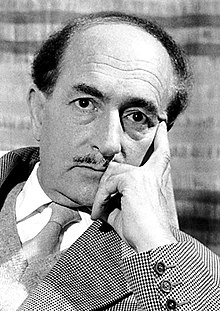 |
|
|
Today is the birthday of Salvatore Quasimodo (Modica, Sicily; August 20, 1901 – June 14, 1968 Naples); author and poet. In 1959 he won the Nobel Prize for Literature “for his lyrical poetry, which with classical fire expresses the tragic experience of life in our own times”. Along with Giuseppe Ungaretti and Eugenio Montale, he is one of the foremost Italian poets of the 20th century.
Ognuno sta solo sul cuor della terra
trafitto da un raggio di sole:
ed è subito sera.
Acque e terre
- Avidamente allargo la mia mano: | dammi dolore cibo cotidiano.
- Desiderio delle tue mani chiare | nella penombra della fiamma: | sapevano di rovere e di rose; | di morte. Antico inverno.
- Di te amore m’attrista | mia terra, se oscuri profumi | perde la sera d’aranci | o d’oleandri, sereno | cammina con rose il torrente | che quasi ne tocca la foce. (Isola)
- Dolore di cose che ignoro | mi nasce: non basta una morte | se ecco più volte mi pesa | con l’erba, sul cuore, una zolla.
- E quel gettarmi alla terra, | quel gridare alto il nome del silenzio, | era dolcezza di sentirmi vivo.
- Fatica d’amore, tristezza, | tu chiami una vita | che dentro, profonda, ha nomi | di cieli e giardini. | E fosse mia carne | che dono di male trasforma.
- Ma se torno a tue rive | e dolce voce al canto | chiama da strada timorosa | non so se infanzia o amore, | ansia d’altri cieli mi volge, | e mi nascondo nelle perdute cose. (Isola)
- Mi trovi deserto, Signore, | nel tuo giorno, | serrato ad ogni luce. | Di te privo spauro, | perduta strada d’amore, | e non m’è grazia | nemmeno trepido cantarmi | che fa secche mie voglie.
- Se mi desti t’ascolto, | e ogni pausa è cielo in cui mi perdo, | serenità d’alberi a chiaro della notte.
- Si china il giorno | e colgo ombre dai cieli: | che tristezza il mio cuore | di carne!
- S’udivano stagioni aeree passare, | nudità di mattini, | labili raggi urtarsi.
- Tindari, mite ti so | fra larghi colli pensile sull’acque | dell’isole dolci del dio, | oggi m’assali | e ti chini in cuore. (Vento a Tindari)
- Ti rivedo. Parole | avevi chiuse e rapide, | che mettevano cuore | nel peso di una vita | che sapeva di circo.
- Un po’ di sole, una raggera d’angelo, | e poi la nebbia; e gli alberi, | e noi fatti d’aria al mattino.
Òboe sommerso
- Ali oscillano in fioco cielo, | labili: il cuore trasmigra | ed io son gerbido, | e i giorni una maceria. (Òboe sommerso)
- Autunno mansueto, io mi posseggo | e piego alle tue acque a bermi il cielo, | fuga soave d’alberi e d’abissi. (Autunno)
- Avara pena, tarda il tuo dono | in questa mia ora | di sospirati abbandoni. (Òboe sommerso)
- Camminano angeli, muti | con me; non hanno respiro le cose; | in pietra mutata ogni voce, | silenzio di cieli sepolti. (Alla notte)
- Città d’isola | sommersa nel mio cuore, | ecco discendo nell’antica luce | delle maree, presso sepolcri | in riva d’acque | che una letizia scioglie | d’alberi sognati. (Nell’antica luce delle maree)
- Di te amore m’attrista, | mia terra, se oscuri profumi | perde la sera d’aranci, | cammina con rose il torrente | che quasi n’è tocca la foce. (Isola)
- Ed è morte | uno spazio nel cuore. (Fresce di fiumi in sonno)
- Farsi amore un’altra morte sento | ignota a me, ma più di questa tarda, | che mi spinge sovente alle sue forme. (Convalescenza)
- I morti maturano, | il mio cuore con essi. | Pietà di sé | nell’ultimo umore hsa la terra. (Metamorfosi nell’urna del Santo)
- In te mi getto: un fresco | di navate posa nel cuore; | passi nudi d’angeli | vi s’ascoltano, al buio. (Alla mia terra)
- Io tento una vita: | ognuno si scalza e vacilla | in ricerca. (Curva minore)
- Lievita la mia vita di caduto, | esilio morituro. (Foce del fiume Roja)
- Non so odiarti: così lieve | il mio cuore d’uragano. (Dormono selve)
- Non una dolcezza mi matura, | e fu di pena deriva | ad ogni giorno | il tempo che rinnova | a fiato d’aspre resine. (L’eucalyptus)
- Odore buono del cielo | sull’erbe, | pioggia di prima sera. (Preghiera alla pioggia)
- Un sole rompe gonfio nel sonno | e urlano alberi; | avventurosa aurora | in cui disancorata navighi, | e le stagioni marine | dolci fermentano rive nasciture. (Alla mia terra)
- Seguiremo case silenziose, | dove morti stanno ad occhi aperti | e bambini già adulti | nel riso che li attrista, | e fronde battono a vetri taciti | a mezzo delle notti. (Dove morti stanno ad occhi aperti)
- Dammi il mio giorno; | ch’io mi cerchi ancora | un volto d’anni sopito | che un cavo d’acque | riporti in trasparenza, | e ch’io pianga amore di me stesso. (Dammi il mio giorno)
- Ti cammino sul cuore, | ed è un trovarsi d’astri | in arcipelaghi insonni, | notte, fraterni a me | fossile emerso da uno stanco flutto; […]. (Dammi il mio giorno)
Erato e Apòllion
- A te piega il cuore in solitudine, | esilio d’oscuri sensi | in cui trasmuta ed ama | ciò che parve nostro ieri, | e ora è sepolto nella notte. (Sillabe a Erato)
- Ad una fronda, docile | la luce oscilla | alle nozze con l’aria; | nel senso di morte, | eccomi, spaventato d’amore. (Nel senso di morte)
- Alle sponde odo l’acqua colomba, | Ànapo mio, nella memoria geme | al suo cordoglio | uno stormire altissimo. (L’ànapo)
- Dal giorno, superstite | con gli alberi mi umilio. (Sul colle delle “Terre bianche”)
- I monti a cupo sonno | supini giacciono affranti. (Apòllion)
- Mansueti animali, | le pupille d’aria, | bevono in sogno. (L’ànapo)
- Nella palude calda confitto al limo, | caro agli insetti, in me dolora | un airone morto. (Airone morto)
- Per averti ti perdo, | e non mi dolgo: sei bella ancora, | ferma in posa dolce di sonno: | serenità di morte estrema gioia. (Sillabe a Erato)
- Sillabe d’ombre e foglie, | sull’erbe abbandonati | si amano i morti. (Latomìe)
- Terrena notte, al tuo esiguo fuoco | mi piacqui talvolta, e scesi fra i mortali. (Canto di Apòllion)
Poesie
- Ancora un anno è bruciato, | senza un lamento, senza un grido | levato a vincere d’improvviso un giorno.
- Illeso sparì da noi quel giorno | nell’acqua coi velieri capovolti.
- Nello spazio dei colli, | tutto inverno, il silenzio | del lume dei velieri: | fredda immagine eterna | navigante! E qui risorge.
- Isole che ho abitato | verdi su mari immobili | D’alghe arse, di fossili marini | e spiagge ove corrono in amore | cavalli di luna e di vulcani.
- Ancora un verde fiume mi rapina | e concordia d’erbe e pioppi, | ove s’oblia lume di neve morta.
Giorno dopo giorno
- E come potevamo noi cantare | con il piede straniero sopra il cuore, | fra i morti abbandonati nelle piazze | sull’erba dura di ghiaccio, al lamento | d’agnello dei fanciulli, all’urlo nero | della madre che andava incontro al figlio | crocifisso sul palo del telegrafo? (da Alle fronde dei salici)
- Scende la sera: ancora ci lasciate, | o immagini care della terra, alberi, | animali, povera gente chiusa | dentro i mantelli dei soldati, madri | dal ventre inaridito dalle lacrime. (da Neve)
- Giorno dopo giorno: parole maledette e il sangue | e l’oro. Vi riconosco, miei simili, o mostri | della terra. Al vostro morso è caduta la pietà, | e la croce gentile ci ha lasciati. (da Giorno dopo giorno)
- Invano cerchi tra la polvere, | povera mano, la città è morta. (da Milano, agosto 1943)
- Ora l’autunno guasta il verde ai colli, | o miei dolci animali. Ancora udremo, | prima di notte, l’ultimo lamento | degli uccelli, il richiamo della grigia | pianura che va incontro a quel rumore | alto di mare. E l’odore di legno | alla pioggia, l’odore delle tane, | com’è vivo qui fra le case, | fra gli uomini, o miei dolci animali. | Questo volto che gira gli occhi lenti, | questa mano che segna il cielo dove | romba un tuono, sono vostri, o miei lupi, | mie volpi bruciate dal sangue. | Ogni mano, ogni volto, sono vostri. (da O miei dolci animali)
We are here to laugh at the odds and live our lives so well that Death will tremble to take us. – Charles Bukowski
I know I have the best of time and space—and that I was never measured, and never will be measured. – Walt Whitman
Mourn –– and then onward… – W.B. Yeats
If the moon smiled, she would resemble you. You leave the same impression of something beautiful, but annihilating. – Sylvia Plath
It is perfume from a dress that makes me so digress? – T.S. Eliot
We had fed the heart on fantasies,
The heart’s grown brutal from the fare;
More substance in our enmities
Than in our love;
– W.B. Yeats
After so many years even the fire of passion dies, and with it what was believed the light of the truth. – Umberto Eco
Who of us is able to say now whether Hector or Achilles was right, Agamemnon or Priam, when they fought over the beauty of a woman who is now dust and ashes? – Umberto Eco
When you are sad,
The mother of the stars weeps too,
And all her starlight is with sorrow mad,
And tears of fire fall gently in the dew.
– W.B. Yeats
Will you sit down with me? and we two will rail against our mistress the world and all our misery. – William Shakespeare

Continue reading
charles bukowski, cowboy coleridge, dino campana, louis xv, love letter, love poem, love song, lovers almanac, madame du barry, muse, octobers little miseries, poem of the day, salvatore quasimodo, shakespeare, sod, song of the day, sylvia plath, the honeydogs, the lovers chronicle, ts eliot, umberto eco, walt whitman, wb yeats, what comes after, Zazie

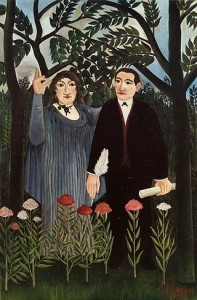
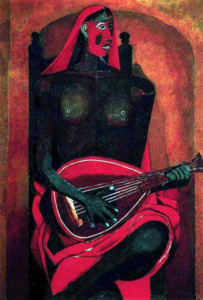
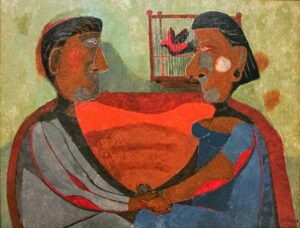
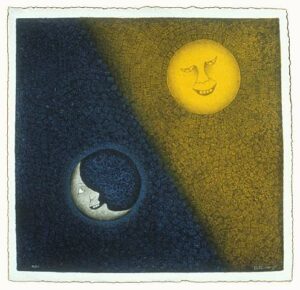
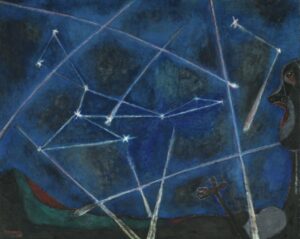


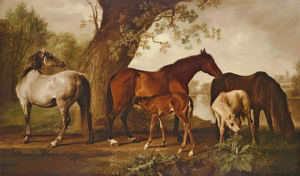
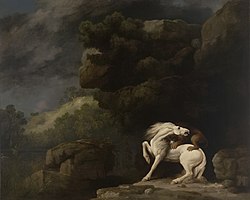


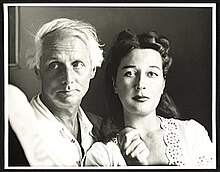
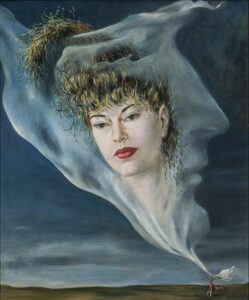
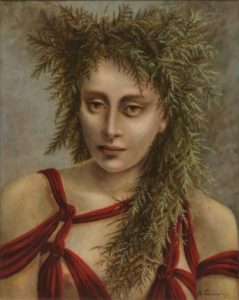

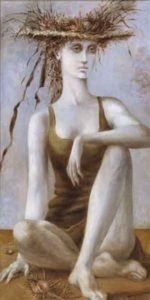




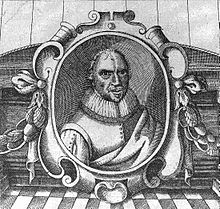
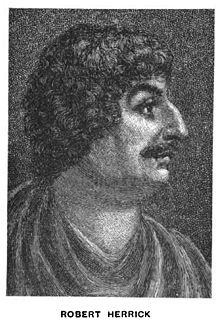

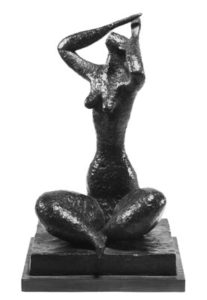

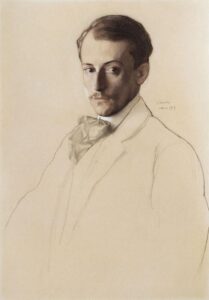 Today is the birthday of Eugène Lanceray (Yevgeny Yevgenyevich Lanceray, Russian:
Today is the birthday of Eugène Lanceray (Yevgeny Yevgenyevich Lanceray, Russian: 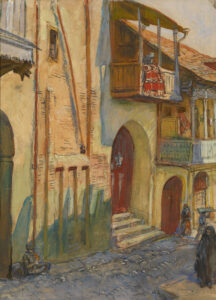
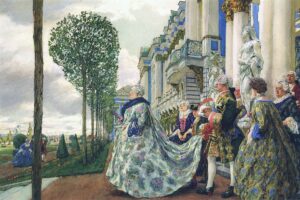
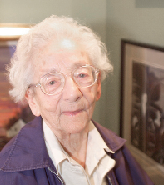 Today is the birthday of Hannah Frank (Glasgow 23 August 1908 – 18 December 2008 Glasgow); artist and sculptor. She was known for her art nouveau monochrome drawings until she decided to concentrate on sculpture in 1952.
Today is the birthday of Hannah Frank (Glasgow 23 August 1908 – 18 December 2008 Glasgow); artist and sculptor. She was known for her art nouveau monochrome drawings until she decided to concentrate on sculpture in 1952.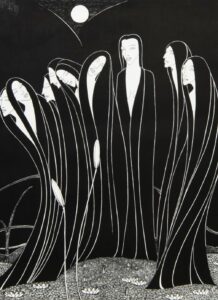
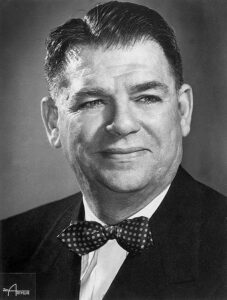
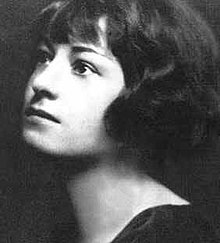
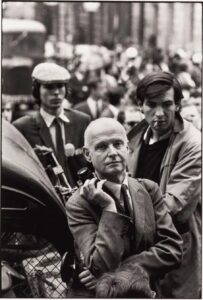 Today is the birthday of Henri Cartier-Bresson (Chanteloup-en-Brie, France; 22 August 1908 – 3 August 2004 Céreste, France); humanist photographer considered a master of candid photography, and an early user of 35 mm film. He pioneered the genre of street photography, and viewed photography as capturing a decisive moment. Cartier-Bresson was one of the founding members of Magnum Photos in 1947.[2] In the 1970s he took up drawing—he had studied painting in the 1920s.
Today is the birthday of Henri Cartier-Bresson (Chanteloup-en-Brie, France; 22 August 1908 – 3 August 2004 Céreste, France); humanist photographer considered a master of candid photography, and an early user of 35 mm film. He pioneered the genre of street photography, and viewed photography as capturing a decisive moment. Cartier-Bresson was one of the founding members of Magnum Photos in 1947.[2] In the 1970s he took up drawing—he had studied painting in the 1920s.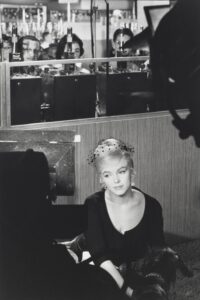

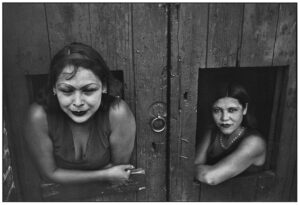
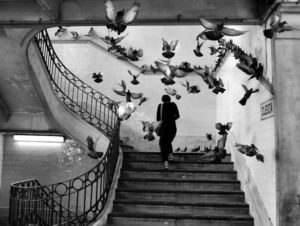
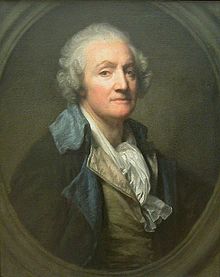







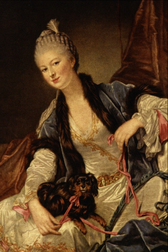
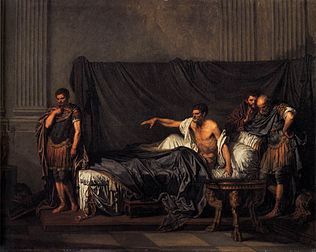

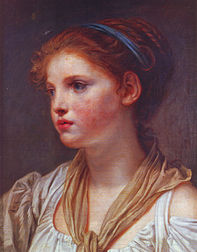






















 On this day in 1887, Franco-Uruguayan poet,Jules Laforgue died in Paris. He wrote a poem called “Petites misères d’octobre”. I was moved by the closing stanza…
On this day in 1887, Franco-Uruguayan poet,Jules Laforgue died in Paris. He wrote a poem called “Petites misères d’octobre”. I was moved by the closing stanza…


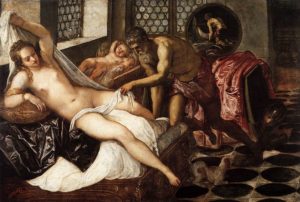

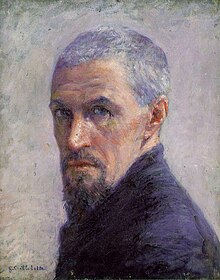













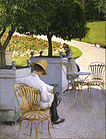










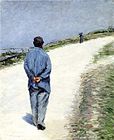


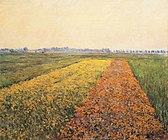

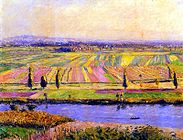

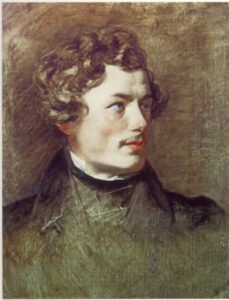
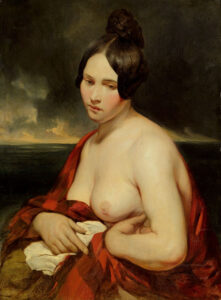

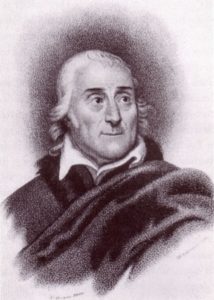 Today marks the anniversary of the death of Venetian opera librettist, Lorenzo Da Ponte in 1838. He composed the libretto for Mozart’s opera Così fan tutte, ossia La scuola degli amanti (Thus Do They All, or The School For Lovers). Of course, I am overwhelmed with the memory of the night I gave you an opera. A memory once so complete, now turned bittersweet. The night I arranged for you and I to attend the dress rehearsal of Cosi. We were in our own little world, enveloped in the sights and the sounds of the production and the feel of each other as we sat so close and I pleaded with time to wait and let us stay in that moment. I will never forget the smell of you and the feel of you as we pressed together to whisper comments about the performance. One of my favorite memories.
Today marks the anniversary of the death of Venetian opera librettist, Lorenzo Da Ponte in 1838. He composed the libretto for Mozart’s opera Così fan tutte, ossia La scuola degli amanti (Thus Do They All, or The School For Lovers). Of course, I am overwhelmed with the memory of the night I gave you an opera. A memory once so complete, now turned bittersweet. The night I arranged for you and I to attend the dress rehearsal of Cosi. We were in our own little world, enveloped in the sights and the sounds of the production and the feel of each other as we sat so close and I pleaded with time to wait and let us stay in that moment. I will never forget the smell of you and the feel of you as we pressed together to whisper comments about the performance. One of my favorite memories. Today is the birthday of Larry Rivers (born Yitzroch Loiza Grossberg; Bronx, New York; 17 August 1923 – 14 August 2002 Southampton, New York); artist, musician, filmmaker, and occasional actor. Considered by many scholars to be the “Godfather” and “Grandfather” of Pop art, he was one of the first artists to merge non-objective, non-narrative art with narrative and objective abstraction.
Today is the birthday of Larry Rivers (born Yitzroch Loiza Grossberg; Bronx, New York; 17 August 1923 – 14 August 2002 Southampton, New York); artist, musician, filmmaker, and occasional actor. Considered by many scholars to be the “Godfather” and “Grandfather” of Pop art, he was one of the first artists to merge non-objective, non-narrative art with narrative and objective abstraction.